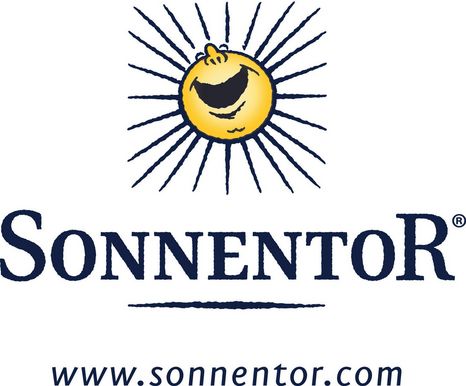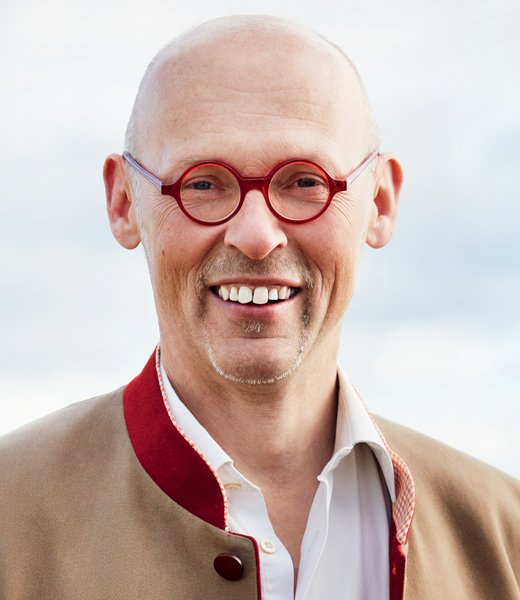Interview with Johannes Gutmann, on his speech
"Closed-loop thinking as the economic concept of the future"
Dieter C. Nass:
Mr. Gutmann, as keynote speaker and expert in the Open Space Workshop on Benchmarkday you will share your experiences and future strategies with the audience. What insights and inspirations can we expect?
Johannes Gutmann:
I look forward to talking about what makes SONNENTOR unique and future-oriented.
At first, nobody thought we would achieve this success. The location in the Waldviertel - at the end of the world, the trade with herbs - no value and hardly any added value!
Dieter C. Nass:
What makes SONNENTOR so different and so successful?
Johannes Gutmann:
We live the common good economy, i.e. it is not about profit and profit maximization, whereby the employees are only cogs that have to function and only a few, like a CEO or shareholders, really benefit from it. It is about emotions and sustainability. The emotions and enthusiasm of employees, partners and customers increase economic power in the long term. The shared values on which the emotions are based ensure sustainable value creation.
Dieter C. Nass:
What does this mean for SONNENTOR's everyday work?
Johannes Gutmann:
Living our philosophy "sowing, multiplying and sharing together". No unnecessary pressure, no doubts and uncertainties, because only if the individual is doing well, is everyone doing well. We have to be transparent and measurable and look for problems and challenges in order to then think of them as our opportunities.
Dieter C. Nass:
What makes SONNENTOR strong for the future Mr Gutmann?
Johannes Gutmann:
The common good that is lived is the strongest counterforce to the negative effects of digitalization and the ever faster spiral of developments and changes.
Dieter C. Nass:
How do you get there as an entrepreneur?
Johannes Gutmann:
You have to get into the "feeling", into the "gourmet", you have to start living! What I understand by this, I will try to convey on Benchmarkday. I am already looking forward to it!
Vita
It all began with the fact that Johannes Gutmann was Waldviertler and wanted to stay that way. The usual way in the 80s - away from the country towards the city - was not his at all. On the contrary, Hannes wanted to work and live in the Waldviertel.
Johannes was already a passionate organic advocate when the word "bio" did not even exist. In the 80s, people in general didn't worry so much about food - where it comes from, what's in it or the way it is grown - "jo eh". Gutmann, however, had such a sense that organic was the best way for health, the environment and our future. And so he had a brilliant idea.
An idea that was neither welcomed with open arms nor enthusiasm. Selling regional organic products together under one roof under the laughing sun - an old Waldviertel symbol? His "crazy idea" was smiled at in 1988. So the 23-year-old moved as a one-man business with his herbs from farmers' market to farmers' market, and soon became a "colourful dog". In addition to first-class organic products, his trademarks - decades-old leather trousers and round red glasses - helped him to make his breakthrough. Today, around 300 farmers belong to the SONNENTOR family.
Expertise / Expert knowledge
When it comes to business success, Joannes Gutmann believes that everyone should have something to gain, and not just a few, like a CEO or shareholders. That's why he practices the public welfare economics.
Johannes Gutmann is not a boss like many others, and SONNENTOR is not a company like any other, where profit and profit maximisation are the order of the day and where employees are only cogs that have to function. Live and let live, mutual recognition and appreciation, fruitful cooperation: that is his philosophy.
"We can't change the whole world, but we can change a bit.
Sonnentor

Sonnentor is constantly growing, beyond itself and beyond the borders. Who would have thought in 1988 that the smiled one-man company would become a company with more than 500 employees worldwide? For a long time Sonnentor has been offering not only organic herbs and spices but also other delicacies: tea, coffee, cocoa and fine sweets - currently around 900 products.


